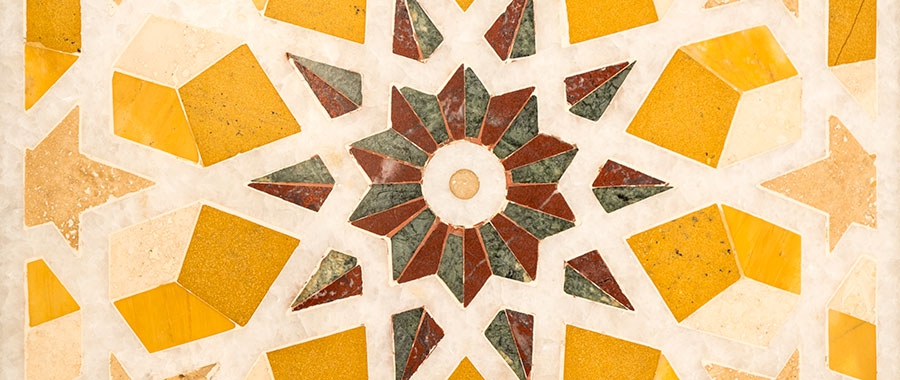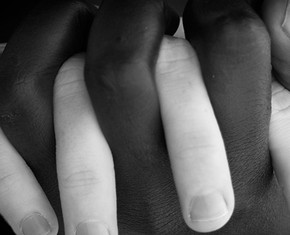The views expressed in our content reflect individual perspectives and do not represent the authoritative views of the Baha'i Faith.
A story from the early days of the Baha’i Faith recounts a conversation between a wealthy, knowledgeable Muslim and a poor, nearly illiterate follower of Baha’u’llah and his forerunner, the Bab. The first man, seeking to bring the other back into orthodox Islam, reportedly asked:
How is it that with all my knowledge, I have failed to appreciate the validity of the message of the Bab while you, an almost illiterate person claimed to have recognized the truth of his mission? – quoted by Adib Taherzadeh in The Revelation of Baha’u’llah, Volume 2, pp. 33-34.
In reply, the Baha’i reportedly picked up a handful of sand and replied:
People like me have no merit in society. They are like the sand in the desert that has no value, yet, when the sun rises in the morning this sand is the first to be illumined by its rays. A learned man, however, is like a precious jewel. It is kept in a box and locked up in a room, and when the sun rises it remains in darkness. – Ibid, p. 34.
The person said to have uttered these words, named Hashim Khan, gained special insight into the way a divine message penetrates society. He saw that God’s teachings at first make the greatest impact on those whose hearts are pure and whose minds have not been cluttered by a spiritually incoherent education. He understood that the knowledge divine educators seek to teach primarily concerns the soul’s relationship to the Creator rather than the workings of the material world or information passed down by others.
In the time of Baha’u’llah, many souls reflected the power of his revelation—meaning the spiritual guidance contained in his writings—like grains of sand in the morning light. Among the most distinguished of these was a man named Shaykh Salman.
At a time before phones, email, social media, or even a modern postal service, Shaykh Salman performed the invaluable service of delivering messages on foot between Baha’u’llah, who lived in exile, and his followers, the vast majority of whom, at that time, lived in Iran. For decades, he would carry letters to Baha’u’llah. And Baha’u’llah would entrust him with his written replies—which, according to the Baha’i teachings, are the revealed Word of God for our time. Shaykh Salman would travel from city to city delivering these sacred messages and meeting with the Baha’is who lived there.
One of his contemporaries wrote of him:
To visit this great soul is a joy beyond measure for any of the believers. Though he was illiterate and his manner of life was extremely simple, he was the essence of intelligence and knowledge. Whenever the friends became entangled in some difficult question, he was able to answer the question and explain the matter under discussion in a few simple words. We never witnessed in him the slightest trace of self, which creeps so insidiously into the hearts of men. – Haji Mirza Haydar Ali, Stories from the Delight of Hearts, p. 133.
Travelling by foot over such a long distance is, of course, quite arduous. One person who accompanied him on one of these journeys was a man named Haji Muhammad-Tahir. He recalled Shaykh Salman asking him to read him the messages. As he read, Shaykh Salman would figure out for whom each one was intended. Once he knew, Haji Muhammad-Tahir would write the name of the recipient to each one.
Shaykh Salman had incredible insight into Baha’u’llah’s teachings as well as into the character and inner life of those he met. And he had a special genius for connecting the two. He was not knowledgeable about books, except for the ones he delivered. But his perceptiveness for the spiritual reality of the people and situations around him was extraordinary. This is evidenced by the fact that Baha’u’llah relied to some extent on Shaykh Salman’s judgement for deciding who in Iran would have the privilege of meeting personally with him in the Holy Land.
The life and deeds of Shaykh Salman testify to what Baha’u’llah wrote in his Book of Certitude:
The understanding of [the words of God] and the comprehension of the utterances of the Birds of Heaven [the messengers of God] are in no wise dependent upon human learning. They depend solely upon purity of heart, chastity of soul, and freedom of spirit. This is evidenced by those who, today, though without a single letter of the accepted standards of learning, are occupying the loftiest seats of knowledge; and the garden of their hearts is adorned, through the showers of divine grace, with the roses of wisdom and the tulips of understanding. Well is it with the sincere in heart for their share of the light of a mighty Day! – Baha’u’llah, The Book of Certitude. p. 211.
The example of Shaykh Salman gives rise to a few considerations about our own time and our own societies. No generation before us has been blessed as we are today with the fruits of education. UNESCO—the United Nations Educational, Scientific and Cultural Organization—estimates that the global literacy rate now stands above 86%. Communities that a short time ago never dreamed of having their own school can now provide academic training for their children. The spread of education has opened innumerable doors for the realization of human potential.
But as humanity draws deeper on the benefits that come from formal schooling, we must never forget that study alone does not refine our character, nor does it necessarily give us special insight into the spiritual dimension of existence. Baha’u’llah calls us to purity of heart, chastity of soul, and freedom of spirit. The life and deeds of Shaykh Salman give us a glimpse into the depth of knowledge that comes from walking that path.
Regardless of our education level, we are led to wonder: Are we precious jewels locked up in a box? Or are we grains of sand awaiting the break of dawn?
















Comments
Sign in or create an account
Continue with Googleor